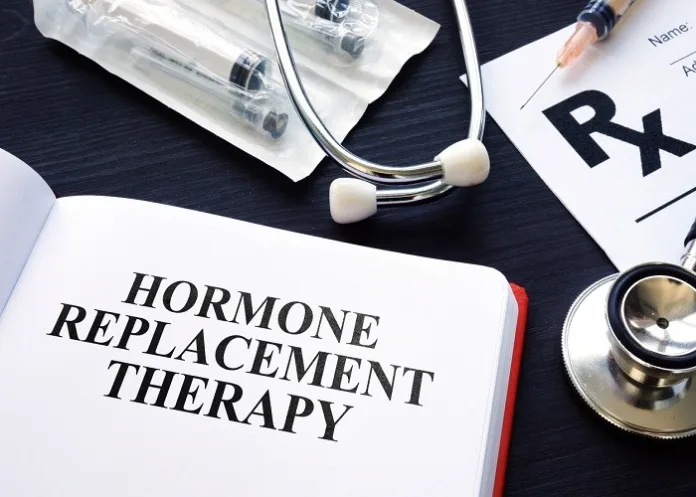A nationwide study carried out in Denmark found that using hormone replacement therapy (HRT) to counteract the effects of menopause, even for short periods, was associated with a higher risk for dementia – although the researchers said that the cognitive declines might not have been due to the treatment.
The findings, published in The BMJ, contradict some earlier studies that suggest HRT may protect against cognitive decline if the treatments are started near menopause onset, reports Reuters.
Complicating the research was that the scientists could not distinguish the reasons HRT was prescribed in the first place – to treat changes in sleep, mood, memory and thinking – from the early dementia symptoms.
Therefore, in some of the women treated with HRT in the study, symptoms that prompted the therapy may actually have reflected early neurological changes.
Starting in 2000, researchers tracked more than 60 000 Danish women, including 5 589 who developed dementia. Overall, nearly 18 000 had received HRT with a combination of oestrogen and progestin, with half starting treatment before 53 and half stopping within four years.
Roughly 90% used oral medications.
Compared with women who never used HRT, those who did had a 24% higher risk of an eventual dementia diagnosis. The risk increased with duration of treatment, reaching 74% for more than 12 years of HRT.
HRT was widely prescribed before 2003, when a large randomised trial found the oestrogen/progestin combination was linked with a two-fold increase in dementia risk among women older than 65.
Subsequent studies showed no increased dementia risk when HRT was started at ages 50-55, or shortly after menopause.
In the Danish study, however, the link between HRT use and dementia persisted regardless of whether treatment started before or after 55.
Study leader Dr Amani Meaidi of the Danish Cancer Society Research Centre in Copenhagen said while the study cannot prove HRT contributes to dementia, causality “is biologically plausible”, and further research is needed.
Dr Sarah-Naomi James of the MRC Unit for Lifelong Health and Ageing at University College London, who was not involved in the Danish research, said the study “has fundamental limitations” in its ability to interpret the link between HRT and dementia, given the similarities between reasons for prescribing HRT and early symptoms of dementia.
“This new study alone should not change practice,” she said.
Study details
Menopausal hormone therapy and dementia: nationwide, nested case-control study
Nelsan Pourhadi, Lina Mørch, Ellen Holm, Christian Torp-Pedersen, Amani Meaidi.
Published in The BMJ on 28 June 2023
Abstract
Objectives
To assess the association between use of menopausal hormone therapy and development of dementia according to type of hormone treatment, duration of use, and age at usage.
Design
Nationwide, nested case-control study.
Setting
Denmark through national registries.
Participants
5589 incident cases of dementia and 55 890 age matched controls were identified between 2000 and 2018 from a population of all Danish women aged 50-60 years in 2000 with no history of dementia or contraindications for use of menopausal hormone therapy.
Main outcome measures
Adjusted hazard ratios with 95% confidence intervals for all cause dementia defined by a first time diagnosis or first time use of dementia specific medication.
Results
Compared with people who had never used treatment, people who had received oestrogen-progestogen therapy had an increased rate of all cause dementia (hazard ratio 1.24 (95% confidence interval 1.17 to 1.33)). Increasing durations of use yielded higher hazard ratios, ranging from 1.21 (1.09 to 1.35) for one year or less of use to 1.74 (1.45 to 2.10) for more than 12 years of use. Oestrogen-progestogen therapy was positively associated with development of dementia for both continuous (1.31 (1.18 to 1.46)) and cyclic (1.24 (1.13 to 1.35)) regimens. Associations persisted in women who received treatment at the age 55 years or younger (1.24 (1.11 to 1.40)). Findings persisted when restricted to late onset dementia (1.21 (1.12 to 1.30)) and Alzheimer’s disease (1.22 (1.07 to 1.39)).
Conclusions
Menopausal hormone therapy was positively associated with development of all cause dementia and Alzheimer’s disease, even in women who received treatment at the age of 55 years or younger. The increased rate of dementia was similar between continuous and cyclic treatment. Further studies are warranted to determine whether these findings represent an actual effect of menopausal hormone therapy on dementia risk, or whether they reflect an underlying predisposition in women in need of these treatments.
Reuters article – Menopause hormone pills associated with dementia, causation unclear (Open access)
See more from MedicalBrief archives:
HRT should be given earlier as menopause ‘reshapes the brainʼ – Nature Scientific Reports
Early menopause may raise dementia risk later – UK study of 150,000 women
HRT not linked to increased risk of dementia — Largest study yet
Hormone therapy associated with improved cognition

